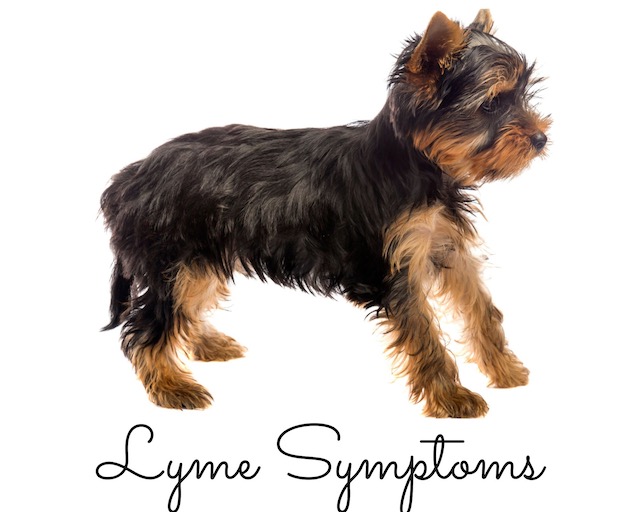
Fifteen Minute Read
April 2024 In-Depth Update
We get it. Everyone’s pretty tired of talking about vaccines. But bear with me, because this discussion is important too. It’s the story of our small dog Scout and the extreme pain and temporary lameness she suffered after her Lyme vaccination for dogs.
And we’re not alone in nursing our Havanese through an adverse vaccine reaction. So many other small dogs have suffered similar reactions from the Lyme vaccine. And four years ago, we learned, too late, that small dogs are more likely to have adverse vaccine reactions. We were pretty upset with ourselves for having gone ahead with Lyme vaccinations, when for years we resisted doing so even though we live in an area where disease-carrying ticks are common.
The Lyme vaccine for dogs is actually pretty controversial, with few veterinarians recommending it wholeheartedly.
Don’t make the mistake I did. We assumed the Lyme vaccine for dogs–one that’s been around a long-time– was now widely accepted. We thought giving the Lyme vaccine to our small dogs was the right thing to do.
In our case, we were wrong.
We’re not saying “don’t vaccinate your small dog for Lyme.” We are saying know the potential side effects, give the vaccine only if you absolutely must, do not give the vaccine in combination with others, and be prepared to support your dog if she experiences an adverse reaction.
Before we delve into the side effects of Lyme vaccine for small dogs, let’s talk briefly about the disease itself.
What Is Lyme Disease?
 I won’t take long with this. In all likelihood, you know what Lyme disease is. But as a refresher, remember that it’s caused by B. burgdorferi, a bacteria carried by ticks. Ticks feed on an animal (usually a deer or mouse) infected with the bacteria and then they pass that bacteria on to humans and dogs unlucky enough to be bitten.
I won’t take long with this. In all likelihood, you know what Lyme disease is. But as a refresher, remember that it’s caused by B. burgdorferi, a bacteria carried by ticks. Ticks feed on an animal (usually a deer or mouse) infected with the bacteria and then they pass that bacteria on to humans and dogs unlucky enough to be bitten.
As I explain further below, most dogs bitten by Lyme do not exhibit any symptoms. However, those who do experience illness will likely act tired and behave as though their joints ache. They may arch their backs in pain or have a limp.
Where Does Lyme Disease Lurk?
 If you’re here reading about the Lyme vaccine for dogs, you likely live in or frequently visit an “endemic” area–a geographic region where something tends to occur. While Lyme was once concentrated only in small pockets of the United States, it’s spreading further every year. If you’re curious about how close you are to an endemic area, check the CDC’s Lyme Maps.
If you’re here reading about the Lyme vaccine for dogs, you likely live in or frequently visit an “endemic” area–a geographic region where something tends to occur. While Lyme was once concentrated only in small pockets of the United States, it’s spreading further every year. If you’re curious about how close you are to an endemic area, check the CDC’s Lyme Maps.
(These are supposed to be updated regularly, but the 2019 Map is still the most recent one available. We updated this article in Spring of 2024).
In looking at the “low incidence” states, you’d think Lyme is an issue only in the Northeast and portions of the upper midwest. However, don’t be misled by those maps. In reality, however, climate change is fueling the spread. According to the CDC’s Division of Vector-Born Disease, the recovery of white-tailed deer populations and “milder winters, earlier springs, and longer, warmer summers”… mean “blacklegged ticks are succeeding in new geographic areas.”

Companion Animal Parasite Council Map
The Companion Animal Parasite Council provides a much clearer (and more up-to-date) picture regarding the risks our small dogs run of contracting Lyme disease in areas where we live or visit. The council harnesses experts in “parasitology, internal medicine, public health, veterinary law, private practice, and association leadership.”
I’m grateful for their work in defining the problem, although I (and most holistic veterinarians and animal nutritionists) would disagree with some of their encouragement regarding use of broad-spectrum pesticides.
How Serious Is Lyme Disease in Dogs?
When dogs DO become ill with Lyme disease, the result can be debilitating and life-threatening. And even when the symptoms are mild, the lengthy antibiotic treatment (usually thirty days of Doxycycline) often wreaks havoc on their GI symptoms. Since our small dogs become more easily dehydrated and lose weight rapidly, Lyme is not something to be casual about.
Having said that, however, many reputable veterinary websites indicate that Lyme disease in dogs rarely causes symptoms, is easily treatable with antibiotics, and seldom results in long-term complications. In fact, Cornell’s College of Veterinary Medicine reports that only 5-10% of dogs testing positive for Lyme will experience any symptoms.
As a result, many vets recommend against giving the Lyme vaccine to dogs.
That’s why, even though we live right next to the state where Lyme first reared its ugly Medusa heads, we never vaccinated our golden retrievers against Lyme. And, we didn’t vaccinate our Havanese either. But then two of our pups developed Lyme, in spite of careful tick control. And then I started worrying about the safety and effectiveness of the oral tick preventative I was feeding my retrievers, given that they’d developed Lyme anyway.
But Caution: Lack of Symptoms Doesn’t Mean Your Pup Doesn’t Have Lyme Disease
In a comprehensive 2023 overview of Lyme disease in dogs, researchers at the University of Veterinary Medicine and Pharmacy in Košice confirmed Cornell’s figure noted above: most dogs infected with this bacteria don’t show any symptoms (95%). Such lack of symptoms can, of course, allow the bacteria to spread to other parts of the body unnoticed. This can lead to more severe health issues, including joint inflammation (especially in the wrists), occasional fever, loss of appetite, tiredness, and problems with the nervous system. Dogs might also experience swollen lymph nodes near the shoulders or knees. Joint issues are the most common problem, and they can affect one or several joints, sometimes causing noticeable swelling and difficulty walking.
In rarer cases, infected dogs may show neurological symptoms such as facial paralysis or sudden aggressive behavior, or even heart problems like inflammation or irregular heartbeats, but these are less common and not well-studied. Some dogs might develop a serious condition called Lyme nephritis, a type of kidney disease that progresses quickly and is associated with immune system complications. This kidney issue, however, is less frequent than joint problems related to Lyme disease. The exact cause of Lyme nephritis isn’t well understood, but it’s believed to be linked to immune responses in the kidneys.
Why I Once Vaccinated My Havanese Against Lyme Disease
 When it came time for Phoebe and Scout’s annual check-ups during the COVID lockdown, I suffered a fit of temporary stupidity. That June was kicking off what would be a banner year for ticks, I hated to be giving the girls internal tick medicine, I always minimize chemicals around the house, and I knew we’d be outside all the time this summer.
When it came time for Phoebe and Scout’s annual check-ups during the COVID lockdown, I suffered a fit of temporary stupidity. That June was kicking off what would be a banner year for ticks, I hated to be giving the girls internal tick medicine, I always minimize chemicals around the house, and I knew we’d be outside all the time this summer.
So, instead of doing the exhaustive refresher research I’m known for (and not in a good way; I drive my family crazy), I spoke briefly with our long-time vet about going ahead with the Lyme vaccination. And so, both Phoebe and Scout received the two-shot series.
I should have reviewed the medical research again first, and then asked my vet specific questions about the pros and cons of Lyme vaccine for small dogs. Had I done so, I would never have agreed to the shots. But, I didn’t do so. I blame my dangerous lapse in attention on other family health challenges and fourteen months of pandemic-brain.
Lyme Vaccine Side Effects? All Seemed OK At First
Just as with the two major COVID vaccinations, doctors administer the Lyme vaccine for dogs in two shots, spaced two-four weeks apart. (However, see note below, regarding new recommendations of THREE shots per year).
With the first shot in June, our vet chose the neck scruff as the injection site. While both pups seemed absolutely fine afterward, within a week, Phoebe developed a large swelling at the Lyme vaccine injection site. It didn’t cause her any pain, and I’d read this reaction could occur, so I wasn’t terribly concerned. We simply checked it daily. Okay, we checked it obsessively every time we touched her, which is a lot. But we truly weren’t all that worried. The swelling was diminishing by the day.
 When it came time for shot two in the series, I spoke briefly with the vet tech about Phoebe’s swelling, and when she assured me the scruff bump was common, I handed the girls over. They seemed their cheerful selves immediately afterwards. I hung out with them for over an hour at home in case they had a delayed allergic reaction. There was none, so I headed out to the grocery store. Had I known of the significant risks, bulleted below, I would never have left her.
When it came time for shot two in the series, I spoke briefly with the vet tech about Phoebe’s swelling, and when she assured me the scruff bump was common, I handed the girls over. They seemed their cheerful selves immediately afterwards. I hung out with them for over an hour at home in case they had a delayed allergic reaction. There was none, so I headed out to the grocery store. Had I known of the significant risks, bulleted below, I would never have left her.
Vaccine Adverse Events More Likely in Small Dogs
- According to a 2005 study published in JAVMA, reactions within 72 hours of ANY vaccination are exponentially more likely in small breed dogs.
- Neutered dogs are 27% to 38% more likely to suffer reactions.
- And, adverse events are 37% to 64% more likely to occur in dogs ages 1 to 3 than in dogs 9 months or younger.
- That left our two-year old, ten pound, spayed Scout at vastly increased risk of an adverse reaction. And we had no idea.
I summarized these bullet points about small dog vaccine reaction data from “Adverse Events Diagnosed Within Three Days of Vaccine Administration in Dogs” published in JAVMA, Vol 227, No. 7, October 1, 2005.
My Stupidity Led to Scout’s Screaming Pain
When I returned from my errand and parked my car in our stone drive, I received my first warning that all was not right with the world. The girls know the sound of my wheels crunching the surface, and they have never, ever failed to bark a particular greeting.
That afternoon, though, I heard silence. Because I immediately jump to “my family is dead” in any even marginally unusual circumstance, my panic started before I opened the car door. If they weren’t barking, they were kidnapped or worse.
 I rushed up the walk and could see Phoebe on her hind legs, her little face peering out the windowpane. That part was normal. What wasn’t normal was her panicked look and the silence. I fumbled to open the door, my fear rising when Scout still didn’t appear. I rounded the corner and felt initial relief when I saw her, standing in the hall.
I rushed up the walk and could see Phoebe on her hind legs, her little face peering out the windowpane. That part was normal. What wasn’t normal was her panicked look and the silence. I fumbled to open the door, my fear rising when Scout still didn’t appear. I rounded the corner and felt initial relief when I saw her, standing in the hall.
But her back was arched and her entire body shook uncontrollably. Dropping to the ground, I reached to scoop her up, and she screamed. Scout doesn’t scream. She’s a tough little pup and not prone to dramatics.
It didn’t take long to determine the source of her pain. I placed her gently on the floor, but her back left leg, where she’d received her injection, just hung there, unused. When I attempted touching it, she cried. We called our vet’s office, and they said “some small dogs do have these reactions.”
More Than Mere “Side Effects”
 I mentally berated myself. I may also have mentally berated my beloved vet. Why didn’t I know this? Why hadn’t I stayed longer to monitor Scout, and why didn’t they send me home with a warning about the Lyme vaccine side effects? Here I was, a good thirty minutes away from veterinary care, with a suffering pup who literally couldn’t walk. They’d instructed me to go get baby aspirin, and that Scout “should be better in an hour or two.”
I mentally berated myself. I may also have mentally berated my beloved vet. Why didn’t I know this? Why hadn’t I stayed longer to monitor Scout, and why didn’t they send me home with a warning about the Lyme vaccine side effects? Here I was, a good thirty minutes away from veterinary care, with a suffering pup who literally couldn’t walk. They’d instructed me to go get baby aspirin, and that Scout “should be better in an hour or two.”
She wasn’t.
For the next forty-eight hours, Scout endured significant pain. In the first twelve hours after the vaccine, she became unable to walk. That night, in the middle of the night, she woke in screaming agony.
The next morning, Scout still wasn’t walking. I had to carry her outdoors to potty, and she’d stand there trembling, looking at me in misery.
The next morning, although I knew it was our vet’s surgery day, I called, insisting on bringing Scout in. They complied, examined her, assured me “this sometimes happens,” and sent me on my way with gabapentin, “if I thought she needed it.”
Well yes. Yes, I did think she needed it. Why would I allow her to continue with such obvious, severe pain?
By the end of the second day, Scout recovered fully from her Lyme vaccine side effects. But I haven’t. I’m still taking myself to task for failing to protect her from unnecessary injury, no matter how temporary. I’m all for short-term suffering when the payoff is good (as in, let’s all get vaccinated against COVID, be sick for a day or two, and save the world). But I am NOT okay with letting my pup suffer even momentarily for a vaccine that may or may not work.
Experts Are Split on Lyme Vaccine
 According to some pretty impressive experts, the Lyme vaccine for dogs is one such questionable vaccine.
According to some pretty impressive experts, the Lyme vaccine for dogs is one such questionable vaccine.
Of six diplomates convened by both the European and American Colleges of Veterinary Internal Medicine, THREE of those six experts suggested the Lyme vaccine for dogs lacked (1) sufficient proof of long-term immunity and (2) objective studies to justify its recommendation.
Why, oh why, hadn’t I uncovered that recent information from the Journal of American Veterinary Medicine before Scout’s shot?
Six Strong Arguments Against The Lyme Vaccine for Dogs
In working to update this article about Lyme vaccine side effects in small dogs 2024, I again scanned veterinary journals and university research sites.

Two years ago, I’d found a very strongly worded opinion piece from two respected researchers published in the August 2021 journal Frontiers In Veterinary Science.
Now, in 2024, guidelines for the vaccination of dogs and cats – compiled by the Vaccination Guidelines Group (VGG) of the World Small Animal Veterinary Association (WSAVA)–state: “Tick control is considered much more important. In Lyme disease endemic regions, the prevention of other tick-borne diseases is essential and relies on the use of rapid-acting ectoparasiticides and routine inspection of dogs for ticks. This also helps to prevent Lyme disease. No vaccine against Lyme disease provides complete protection. The efficacy of these vaccines is uncertain, and it is unclear whether these vaccines protect against Lyme nephritis, the most severe form of the disease (O’Bier et al., 2021; Vogt et al., 2019; Vogt & Stevens, 2021).” See: https://doi.org/10.1111/jsap.13718.
These researchers’ arguments have cemented my decision for this year: I again will not give my small dogs the Lyme vaccine in 2024.
Nadine A. Vogt of the Department of Population Medicine, Ontario Veterinary College, University of Guelph, and Christine Stevens, Department of Philosophy, King’s College London, present the many reasons Lyme vaccines are inadvisable. I’ve summarized their reasons below:
1. LYME IS A DISEASE OF LOW CLINICAL SIGNIFICANCE
In other words, most dogs do not exhibit symptoms and, according to Vogt and Stevens, “the vast majority of dogs appear to exhibit a kind of natural immunity to Lyme borreliosis.”
The small percentage of dogs (less than 5%) who do suffer symptoms usually only face a type of Lyme arthritis, which eases after the first several days of antibiotic treatment. More serious complications involving the kidneys and heart have been reported, but they are rare. We recommend reading the American College of Veterinary Internal Medicine (ACVIM) Small Animal Consensus Statement on Lyme Disease in Dogs for an in-depth understanding of Lyme disease in dogs.
2. MOST LYME INFECTIONS RESPOND READILY TO TREATMENT
 As reported in the Journal of Veterinary Internal Medicine, symptomatic Lyme disease is effectively treated with antibiotics. This is where I went astray last year. In my desire to avoid having to treat the disease with antibiotics that wreak havoc on our small dogs, I thought we could avoid it altogether with the vaccine. But as you’ll see below, the vaccine doesn’t really do what it promises AND it carries too much risk to be acceptable for us.
As reported in the Journal of Veterinary Internal Medicine, symptomatic Lyme disease is effectively treated with antibiotics. This is where I went astray last year. In my desire to avoid having to treat the disease with antibiotics that wreak havoc on our small dogs, I thought we could avoid it altogether with the vaccine. But as you’ll see below, the vaccine doesn’t really do what it promises AND it carries too much risk to be acceptable for us.
We’ve shared below the treatment chart. It sets forth the types of antibiotics for treating Lyme and the recommended course of treatment.
3. LYME TRANSMISSION CAN BE PREVENTED ALTOGETHER
Whether you’re comfortable using ingestible anti-parasitic drugs and topical anti-parasitics, or whether you prefer herbal topicals or sprays and obsessive tick-checks, it’s entirely possible to prevent ticks from transmitting infection to your dogs.
Unfortunately, many vets apparently recommend the vaccine when they perceive their clients aren’t complying with their recommended tick-preventative. However, Vogt and Stevens point out that such recommendations are appropriate only when the vaccine is safe and effective. And in the case of the Lyme vaccine for dogs, they review evidence indicating the shot is neither safe nor effective enough.
4. THE LYME VACCINE MAY BE INEFFECTIVE
Hold on to your seat, as this information will probably enrage you.
It certainly did us.
Specifically, Vogt and Stevens report that “to date, there are no available experimental field trials examining the efficacy of canine B. burgdorferi vaccines.”
Let’s let that sit for a moment.
No company has yet actually done adequate controlled testing of the Lyme vaccine’s effectiveness in dogs.
In spite of the fact that over eight Lyme vaccines for dogs exist, and those vaccines are of three different types (bacterins, recombinant OspA subunit vaccines, and a chimeric recombinant OspA and OspC vaccine, whatever those all mean), no company has yet actually done adequate controlled testing of these vaccines’ effectiveness.
Indeed, Vogt and Stevens reveal that the substandard studies already performed don’t account for the fact that the dogs in the study may have been on tick preventative. Thus, it may have been the tick preventative and not the vaccine that blocked Lyme infection.
The lack of adequately controlled testing regarding effectiveness is alone a reason to reject this vaccine.
2023 Update: One new study out of Germany found that the Lyme vaccine loses effectiveness nearly altogether after 180 days and so now recommends a third booster on day 180. In addition, the study directors argued vehemently that Lyme disease is a greater danger to dogs and human health than risk of adverse vaccine reactions. In taking that position, they offered no new evidence, nor did they study adverse vaccine reactions in small dogs.
5. SAFETY CONCERNS WITH LYME VACCINE FOR DOGS
Vogt and Stevens report that the Lyme vaccination has the highest incident of adverse reactions compared to other vaccines. We certainly experienced that.
And, as we reported above, small dogs are more prone than others to bad reactions to Lyme vaccinations.
Moreover, the Lyme vaccine must be given annually. Such frequency makes it even more likely your pup could encounter a painful experience like Scout did. Indeed, according to Dr. Littman, cited above, to the extent the vaccine IS actually effective, it’s “not for a very long duration of immunity, thus annual (or even every 6 months) boostering has been recommended.” And, that German study noted above recommends just that.
6. LYME VACCINE FOR DOGS DOES NOT PROTECT PUBLIC HEALTH
Finally, Vogt and Stevens remind us that we often vaccinate not just to protect individuals but to protect the entire population. The COVID-19 vaccine is one such vaccination, in that it helps develop herd immunity.
However, Lyme disease is not a communicable disease. Dogs don’t give Lyme disease to other dogs. Dogs don’t give Lyme disease to their human families. Lyme spreads only through the bite of an infected tick. Accordingly, there’s no public health justification for vaccinating our dogs against Lyme disease.
Recap: Six Reasons To Avoid The Lyme Vaccine for Small Dogs
We encourage you to read Vogt and Stevens’ well-researched 2021 opinion piece “Why the Rationale for Canine Borrelia burgdorferi Vaccination Is Unpersuasive” in Frontiers in Veterinary Medicine. They set forth clear reasons why neither vets nor pet parents should consider vaccinating their small dogs against Lyme disease:
- the vast majority of dogs do not suffer Lyme symptoms even if they contract the disease
- effective treatments against Lyme are readily available
- appropriate prevention methods can prevent tick bites altogether
- experts argue the vaccine has not undergone adequate testing for effectiveness and requires annual vaccine administrations
- studies reveal the vaccine is more likely than any other to produce adverse reactions.
- the vaccine does not protect public health, as Lyme is not spread from dog to dog or dog to person.
No Requirement To Report
Though I do blame myself for failing to know all potential risks from the Lyme vaccine for dogs, I also believe much of the drug and veterinary industry bears blame for sweeping those risks under the rug. You’ll be shocked to learn they really don’t care (in my mind, anyway) about tracking adverse side effects. Vets can report vaccine reactions. They’re allegedly “strongly encouraged to do so.” But if that’s the case, why does the American Animal Hospital Association report that few do so? Strong encouragement should result in measurable response. And yet, vaccine reaction reporting is dead on arrival. As a result, we have no idea how widespread or severe these vaccination reactions are, especially with our small dogs. As noted above, they apparently tend to react more frequently and with greater severity.
Where’s the lobby demanding better vaccine testing and tracking for animals? At least one major veterinary school recognizes the pressing need for additional research with respect to all animal vaccines. Let’s work to get there in the coming few years.
The Bottom Line on Lyme Vaccine
After slogging through some pretty dense veterinary sites and medical journals, our family has decided our pups will never again receive the Lyme vaccine. The vaccine’s controversy among experts persuades us to skip this vaccine. In addition, our deeply negative, scary experience with the Lyme vaccine makes that decision easy. We provide this information here so you can come prepared to talk with your vet. In addition, download The Checklists: Tick Prevention and Lyme Vaccine Precautions: https://view.flodesk.com/pages/60fdee0793887aee46912762
Download The Checklist
(This post about Lyme vaccine for small dogs may contain affiliate links for your shopping convenience and to help support our work. As an Amazon Associate we earn from qualifying purchases. The non-Amazon links are not affiliate, but they’re there because we want you to have quick access to products or information we regardless of whether we earn a commission. Our full disclosure, disclaimer, and copyright notices are found here. )
IMPORTANT ADDITIONAL DISCLOSURE
Our blog articles offer generalized information only. You should not assume that recipes, tips or tricks are safe or effective for your particular dog’s needs! Always proceed with great caution when trying new foods or making medical decisions for your pup, especially. You must do your own additional research. Do not rely on this information as a substitute for professional medical advice, diagnosis, or treatment of any health condition or problem affecting your dog. All questions or concerns you have about your dog’s health should be addressed with your veterinarian, animal nutritionist, or other healthcare provider. We so hope our writing helps inspire you to help your small dog live a long, happy, and healthy family life. BUT, you need to consult personally with experts in order to make that happen.
You’ll Also Love
Leave a Reply
Your email address will not be published.
-
Wow this was a great read thank you! I will not be giving this to my small dog. But I was wondering what do you use as a tick prevention for your small dogs? My dog is less than 8lbs.
-
Thank you so much for your article. After listening to a suggestion from a friend I was ready to obtain the vaccination for my 20 pound fur baby. And couldn’t understand why my vet hadn’t offered it along with all the usual vaccines. Going to hold off now.
-
I wish i read this article before i went to the vet. My 6lb Maltese is suffering the same reaction to the shot as your dog. I cannot get him to eat. I will never get another lime shot. I feel so bad. He is my life.
-
I’m heartbroken as I read this, why don’t they educate dog parents about the dangers of vaccines? My 8lb chorkie Ruby, received her Lyme vaccine yesterday and since this morning she has barely moved and is not herself. I thankfully found this article after searching the Internet for some advice… my vet said to monitor her and call tomorrow. I feel awful that I didn’t think more carefully about her small size and adverse effects and I’m a pharmacist I know better… thank you for this article, I hope my precious Ruby will make a full recovery like your pup.
-
I stumbled upon this bc we have a 9lb doxie who is suffering side effects from the lymes vaccine. I’m already frustrated with myself for letting them push it upon us but I hate that this seems more common than not and they didn’t warn me at all. Our pup is just now 2 days from the vaccine starting to act more like himself and run around again like normal. Thank you for sharing your findings. We also discussed and can’t fathom putting our pup through this once a year! It’s not worth it.
-
I cannot thank you enough for this article. My long hair chihuahua “BEAR” (7lbs) was scheduled this morning for his Lyme vaccine. We live in PA so a HIGH RISK state for sure. He already had anaplasmosis a year ago and will test positive likely forever. He responded well to the regime at the time and his symptoms subsided in a matter of a day or two. However, this “well visit” our vet was insistent that he get the vaccine. I worry incessantly about this tiny precious boy and wanted to know all the studies, your article, coupled with a few studies I read, has convinced me I will NOT vaccinate him. I work diligently to check him for ticks daily if he has been on the lawns, we use Cedarcide spray and chips on our extensive lawns several times a year (once the snow is gone). He is far too tiny to be wandering in the woods so this is where he would encounter ticks and does but we hand pick them off. Thank you again,
-
My 4 year old was given this Lyme vaccination and now she is sick ,she doesn’t want to eat drink and very lethargic.
She has an upset stomach and require injections every week..
This vaccination should have been talked over by the vet before administrating this with the owner of my little girl who was perfectly healthy.
I had confidence that they would know what was best for her but this was not the case.
I just hope that she will survive because she’s my best friend.
So do your research before this happen to you
‘ -
Our family has always been very conservative with all vaccines, but we just lost our silver lab who was a month shy of 3 years old to lymes nephritis. We are devastated to say the least. We live in the Va Beach area and had never heard of a dog dying from lymes. Our girl was the absolute sweetest and I’d give anything to have her back. She showed no symptoms until about a month before we had to say goodbye. It started with a back ankle injury that we thought was from playing on the trampoline with our son, she limped for two days and was better but around that time she stopped eating her dog food completely. Our family also was going through the flu and thought maybe she was experiencing symptoms also. She still wanted people food, so that’s what we fed her. After another week she was becoming more opposed to people food so we took her in to the vet where I was expecting them to say she had a parasite, here are some antibiotics, she’ll be better in a week. Nope. Took her bloodwork and her kidney levels were alarmingly high and she also tested positive for tick borne illness. Went to the emergency vet where they confirmed lymes. They immediately hooked her up to IVs to flush her kidneys and started the strong antibiotics. Every time they called, her numbers went up higher. We eventually brought her home to just spend the last amount of time we had with her. I kept trying the meds, hoping she would turn around but after two nights of panting and trembling, I couldn’t let her suffer anymore and we had to make the hard decision. We had no way of knowing she had limes in her system, she had been on flea and tick prevention, but we also lighten up in the winter. Vet said if a tick can latch on for up to 11 hours before dropping off, they can transmit the disease. We’ve also been told labs and goldens are affected far more than other breeds. We miss her so much and I don’t wish this loss on anyone. I regret not getting her the vaccine, and I’m against many vaccines. I don’t know what the right answer is. Just wanted to share our story. I came across your article when researching the lymes vaccine. We will eventually get a dog again, and I want to get my facts straight. Willow made us fall in love with labs and I don’t want to go through such a painful loss again and I hope none of you ever have to.
-
Im so sorry, I can relate. I just got my dog the lyme vaccine 48 hours & it’s horrible. 1st she had temporary Sudden paralysis in both back legs. I took her into emergency vet & they wouldn’t even consider the vaccine being the problem. They send me home with gabapentine.
All night she has been stiffening up, involuntary movements, no activity & weakness especially in back legs. It’s so scary & I know it’s my fault for not doing more research, But they didn’t even give me 1 warning.
I am taking her back to emergency now they want to do blood test & xrays.
Did you have to do any of that, does it help to do xrays, what would you suggest now?





Wow this was a great read thank you! I will not be giving this to my small dog. But I was wondering what do you use as a tick prevention for your small dogs? My dog is less than 8lbs.
Hi Amanda: Thanks so much for taking time to comment- I appreciate having actual conversations about the work I do here :).
In terms of tick prevention, we do not use internal meds like Nexguard, etc., simply because the idea of pesticides circulating in my pups’ bloodstream makes me cringe. And, the FDA has warned about adverse reactions caused by some of these ingestible flea and tick preventions.
Right now, we’re using Wondercide Flea and Tick spray, which seems to be working extremely well for us. The ticks are terrible this season, but I rarely find ticks on the girls now. The issue is remembering to use the spray consistently.
As a caveat, some purists committed to finding natural ways of protecting their pups from pests don’t like Wondercide because it contains sodium laurel sulfate. I don’t have a problem with that ingredient in small doses – they derive it from coconut oil, and because my girls have longish hair, not much of it comes in contact with their skin. But I did want to point out that no product is perfect, and we have to balance the drawbacks with the many benefits. For me, Wondercide is working well. I hope that helps!
Thank you so much for your article. After listening to a suggestion from a friend I was ready to obtain the vaccination for my 20 pound fur baby. And couldn’t understand why my vet hadn’t offered it along with all the usual vaccines. Going to hold off now.
Hi Deborah – so glad to hear you have a vet who doesn’t automatically include a potentially unnecessary vaccine. And I’m happy our story gave some context to the extra care we need to take with our small pups. Give yours a belly rub from us!
I wish i read this article before i went to the vet. My 6lb Maltese is suffering the same reaction to the shot as your dog. I cannot get him to eat. I will never get another lime shot. I feel so bad. He is my life.
Dixie:
I’m so terribly sorry to hear this. How is your little pup now? Scout did make a complete recovery, and hopefully he will as well. Consider asking your vet about supplementing him with Spirolina – a peer reviewed study shows it can aid immune response with rabies vaccine and support digestive health. Although the study involved rabies, other studies show the microalgae has similar benefits with other vaccines in humans and other animals. Here’s a link to it: https://www.frontiersin.org/articles/10.3389/fnut.2021.667072/full
I’m heartbroken as I read this, why don’t they educate dog parents about the dangers of vaccines? My 8lb chorkie Ruby, received her Lyme vaccine yesterday and since this morning she has barely moved and is not herself. I thankfully found this article after searching the Internet for some advice… my vet said to monitor her and call tomorrow. I feel awful that I didn’t think more carefully about her small size and adverse effects and I’m a pharmacist I know better… thank you for this article, I hope my precious Ruby will make a full recovery like your pup.
Oh Penny – I am so sorry, and I know how upset you are. Don’t blame yourself, although I know I had the same reaction. Next time you’ll know. Did your vet recommend any type of pain relief? I hope Ruby is doing well. Please email me – [email protected]. I’d love to hear that she’s feeling better.
I stumbled upon this bc we have a 9lb doxie who is suffering side effects from the lymes vaccine. I’m already frustrated with myself for letting them push it upon us but I hate that this seems more common than not and they didn’t warn me at all. Our pup is just now 2 days from the vaccine starting to act more like himself and run around again like normal. Thank you for sharing your findings. We also discussed and can’t fathom putting our pup through this once a year! It’s not worth it.
Jen – I’m so sorry this happened, but I’m relieved your little doxie is back to himself. I share your frustration – it’s tough to raise these issues sometimes without being labeled as “difficult” or worse :). Our vet records now very clearly show that before ANY vaccine, Scout gets a dose of an antihistamine. And we just don’t give the Lyme anymore–but I’m lucky we’ve found successful ways (so far) to deal with ticks before they do damage to us or the girls. Give that dog a belly rub from me!
I cannot thank you enough for this article. My long hair chihuahua “BEAR” (7lbs) was scheduled this morning for his Lyme vaccine. We live in PA so a HIGH RISK state for sure. He already had anaplasmosis a year ago and will test positive likely forever. He responded well to the regime at the time and his symptoms subsided in a matter of a day or two. However, this “well visit” our vet was insistent that he get the vaccine. I worry incessantly about this tiny precious boy and wanted to know all the studies, your article, coupled with a few studies I read, has convinced me I will NOT vaccinate him. I work diligently to check him for ticks daily if he has been on the lawns, we use Cedarcide spray and chips on our extensive lawns several times a year (once the snow is gone). He is far too tiny to be wandering in the woods so this is where he would encounter ticks and does but we hand pick them off. Thank you again,
Hi Pamela – It’s so difficult to know exactly what’s right. I HAVE heard terrible stories of Lyme creating life-threatening illnesses in dogs. But, as you concluded, that doesn’t necessarily mean a vaccine in a high risk state makes sense for our small dogs. We’re also hyper-vigilant and have not had an attached tick in years – and we test for Lyme at least once a year. We haven’t yet tried Cedarcide (we do use Wondercide spray on ourselves and the pups.) I’ll have to look into that. Give Bear a belly rub from us, and hopefully your veterinarian will talk to you about the studies you’ve found. We’re lucky to have someone who tolerates my hyper-developed research habits and will have intelligent conversations with me. It’s not like we’re relying on random Facebook posts – we’re looking at the peer-reviewed research.
My 4 year old was given this Lyme vaccination and now she is sick ,she doesn’t want to eat drink and very lethargic.
She has an upset stomach and require injections every week..
This vaccination should have been talked over by the vet before administrating this with the owner of my little girl who was perfectly healthy.
I had confidence that they would know what was best for her but this was not the case.
I just hope that she will survive because she’s my best friend.
So do your research before this happen to you
‘
I am so terribly sorry to hear this, Andrea. What type of injections are they giving her? Is it possible she is sick for another reason? I’ve not heard of treatment like this. Sending lots of healing strength your way-
Our family has always been very conservative with all vaccines, but we just lost our silver lab who was a month shy of 3 years old to lymes nephritis. We are devastated to say the least. We live in the Va Beach area and had never heard of a dog dying from lymes. Our girl was the absolute sweetest and I’d give anything to have her back. She showed no symptoms until about a month before we had to say goodbye. It started with a back ankle injury that we thought was from playing on the trampoline with our son, she limped for two days and was better but around that time she stopped eating her dog food completely. Our family also was going through the flu and thought maybe she was experiencing symptoms also. She still wanted people food, so that’s what we fed her. After another week she was becoming more opposed to people food so we took her in to the vet where I was expecting them to say she had a parasite, here are some antibiotics, she’ll be better in a week. Nope. Took her bloodwork and her kidney levels were alarmingly high and she also tested positive for tick borne illness. Went to the emergency vet where they confirmed lymes. They immediately hooked her up to IVs to flush her kidneys and started the strong antibiotics. Every time they called, her numbers went up higher. We eventually brought her home to just spend the last amount of time we had with her. I kept trying the meds, hoping she would turn around but after two nights of panting and trembling, I couldn’t let her suffer anymore and we had to make the hard decision. We had no way of knowing she had limes in her system, she had been on flea and tick prevention, but we also lighten up in the winter. Vet said if a tick can latch on for up to 11 hours before dropping off, they can transmit the disease. We’ve also been told labs and goldens are affected far more than other breeds. We miss her so much and I don’t wish this loss on anyone. I regret not getting her the vaccine, and I’m against many vaccines. I don’t know what the right answer is. Just wanted to share our story. I came across your article when researching the lymes vaccine. We will eventually get a dog again, and I want to get my facts straight. Willow made us fall in love with labs and I don’t want to go through such a painful loss again and I hope none of you ever have to.
Im so sorry, I can relate. I just got my dog the lyme vaccine 48 hours & it’s horrible. 1st she had temporary Sudden paralysis in both back legs. I took her into emergency vet & they wouldn’t even consider the vaccine being the problem. They send me home with gabapentine.
All night she has been stiffening up, involuntary movements, no activity & weakness especially in back legs. It’s so scary & I know it’s my fault for not doing more research, But they didn’t even give me 1 warning.
I am taking her back to emergency now they want to do blood test & xrays.
Did you have to do any of that, does it help to do xrays, what would you suggest now?